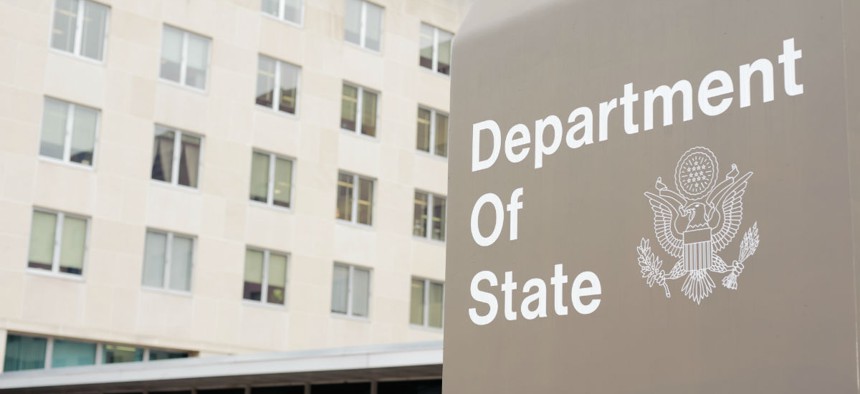Diplomats Cheer State Dept. Spending Bill That Rejects Trump Cuts
“Now is not the time for retreat,” says Foreign Service association.
Retired and current diplomats are heartened that a fiscal 2018 spending bill that cleared the Senate Appropriations Committee last week would not subject the State Department to the steep budget cuts President Trump is seeking.
The $51.3 billion spending bill is $10 billion higher than Trump’s request, providing $30.4 billion for enduring costs and $20.8 billion for Overseas Contingency Operations. It also omits any endorsement of the redesign of State and the U.S. Agency for International Development being contemplated by Secretary of State Rex Tillerson—it would require consultation with Congress and the Government Accountability Office before such changes were undertaken.
The measure assumes that “‘soft power,’ as it’s commonly called, is an essential ingredient to national security,” said Sen. Lindsey Graham, R-S.C., chairman of the Senate Appropriations State and Foreign Operations Subcommittee. It now heads to the full Senate.
The White House in its March “skinny budget” had sought a 28.7 percent cut of some $10 billion in State’s operating budget from the 2017 enacted level of spending. The proposed cut counted on savings from the department’s pending reorganization.
“The president sent us a budget that was irresponsible and indefensible,” said ranking member Sen. Patrick Leahy, D-Vt., before the bill cleared the full Appropriations Committee on Sept. 7. “We were provided no credible justification for the cuts that were proposed, which would have severely eroded U.S. global leadership. This bill repudiates the president’s reckless budget request.”
In a victory for Trump, the bill does leave out funds for grants, assistance, or contributions to the Green Climate Fund, “as none were requested by the president,” a release said.
Diplomats have been on edge about State’s funding for the past six months. The American Foreign Service Association made public a running list of quotes from diplomats and foreign policy specialists arguing against cuts.
On Thursday, Amb. Barbara Stephenson, president of the association, told Government Executive that “the Senate appropriations committee unanimously cast its vote for a strong America. We are grateful for this bipartisan support of the vital work of the Department of State and USAID and for the recognition that diplomacy and development are the most cost-effective tools in our national security toolkit….. Now is not the time to adopt a doctrine of retreat; we cannot and must not cede the field to our adversaries.”
Amb. Ronald Neumann, president of the American Academy of Diplomacy, said the Senate budget numbers “are much better” and were clearly arrived at “through bipartisan leadership.”
The original White House budget was not Tillerson’s, Neumann added, saying the secretary “had to accept it as a loyal follower. One of the most interesting sidelights of all this is seeing Congress being pushed back into a supervisory role in the way the Constitution established it.” That role, in recent years “had been slipping away,” added Neumann, who testified to the appropriations committee in June.
He too praised both the spending bill and the authorization bill that cleared the Foreign Relations Committee for requiring an “open discussion process before putting any [reorganization] changes into place.”
The House version of State’s appropriation, passed in July but also included in Thursday’s “octobus” bill that cleared the full chamber, would provide $47.4 billion in both regular discretionary and Overseas Contingency Operations funding. This is about $7 billion more Trump’s request of $40.6 billion for discretionary and overseas contingency funding combined.
NEXT STORY: Play of the Day: Testing Out the Wall








